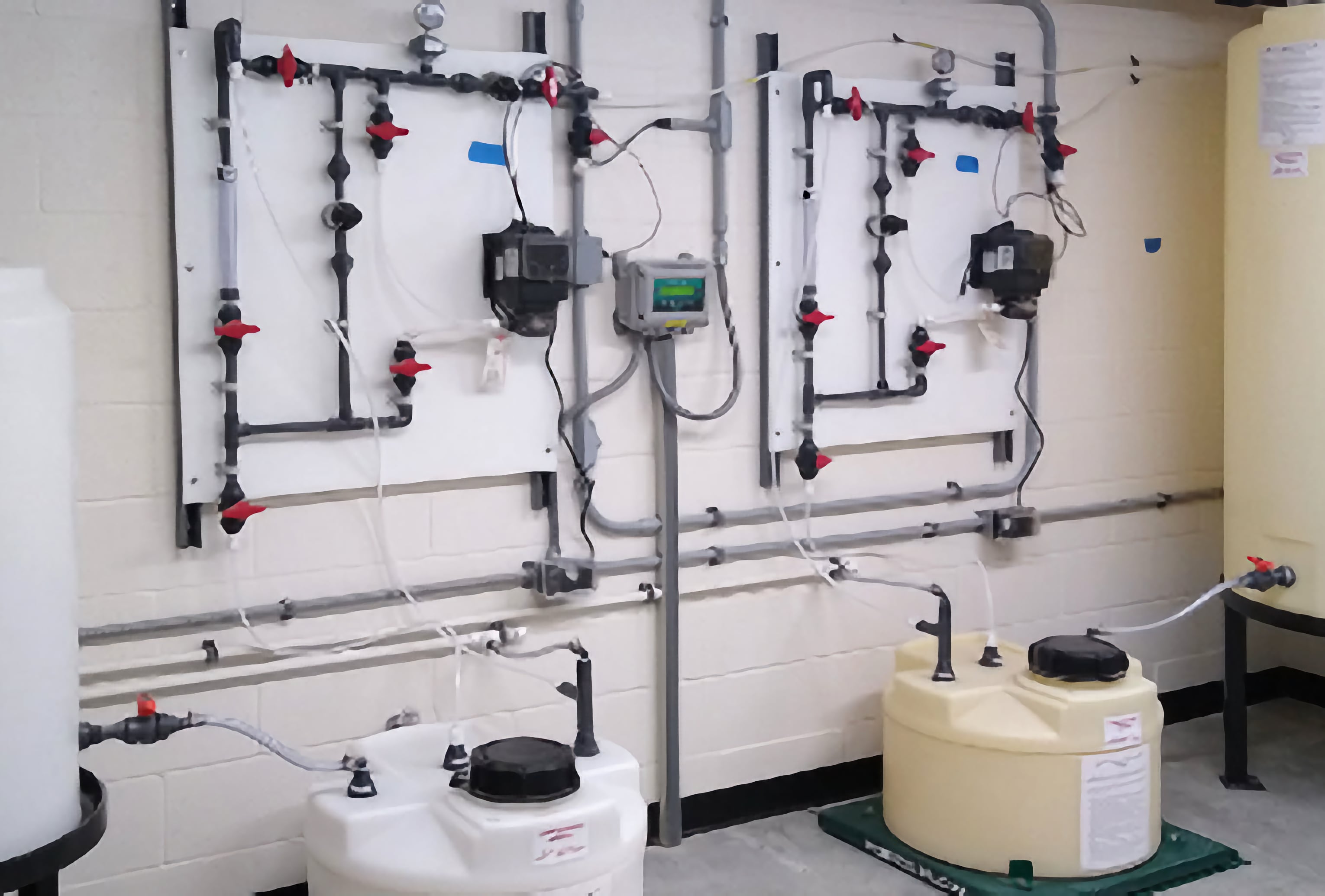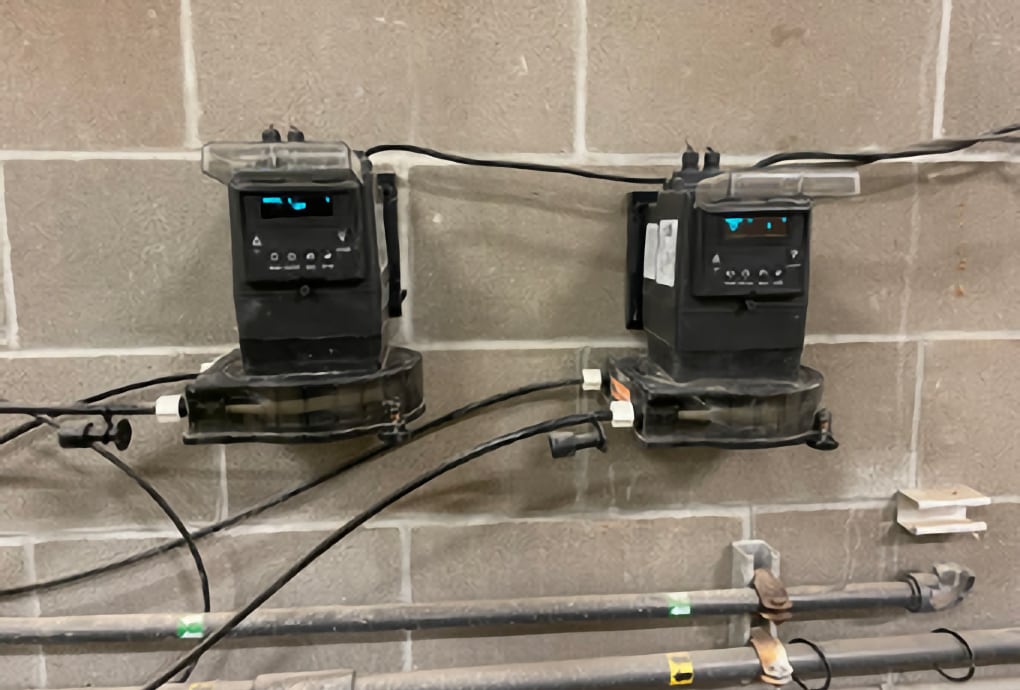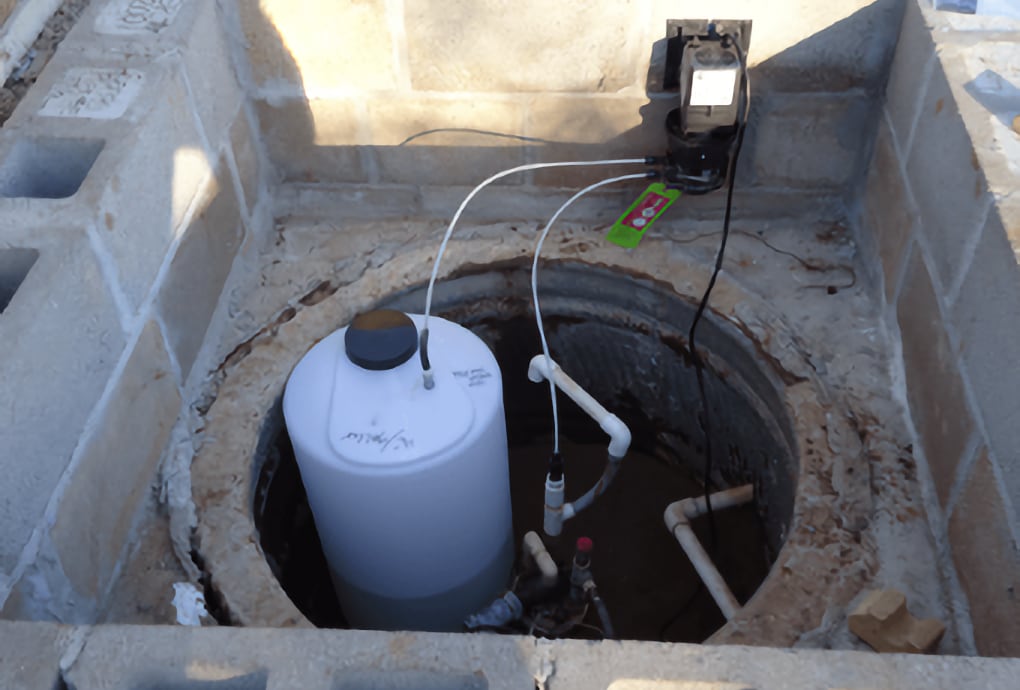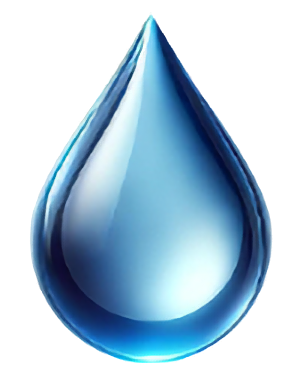The Stenner Pump Company is committed to manufacturing reliable peristaltic metering pumps for dependable performance. The dependability is built into the pumps.
OMNI Water Is Your Local Stenner Dealer
Pumps Built With A Strong Work Ethic Since 1957



RELIABLE REPEATABLE INJECTION
Stenner pumps are self-priming and deliver consistent output reproducibility.
LESS DOWNTIME
No loss of prime from off-gassing solutions. Self-priming up to 25 feet.
PRACTICAL DESIGN
- Solution does not contact moving parts
- 3-point roller assembly to help prevent backflow, siphoning, overdosing and loss of prime
- Can run dry without damage and self-prime when the tank is re-filled
- Degassing valve not required
- Foot valve or check valve not needed in the pump head
TUBE REPLACEMENT WITHOUT TOOLS
One of the apprehensions of a peristaltic metering pump is replacing the tube which is a part of regular maintenance. Stenner has the answer with two tube replacement methods, both without tools and both patented.
QuickPro® Pump Head and Quick Release Pump Head
Only available from Stenner, the QuickPro® Pump Head. The pump head cover is used to collapse the roller assembly to remove the tube and to expand and lock the roller assembly after the tube has been installed.
The Econ pumps are equipped with the patented quick release pump head. Unlatch the cover, slide it off, and remove the tube. Place the new tube, slide the cover on and latch the cover and you are done.
SINGLE PIECE TUBE CONSTRUCTION
Stenner pump tubes are manufactured as a single piece construction. During the manufacturing process, the tube fitting is bonded to the tube material making it a stronger connection because the fitting is not attached to the tube material in a separate operation. Tube lubrication is not required.




What is a peristaltic pump?
A peristaltic pump is a self-priming pump that achieves pumping action by moving a system of rollers against a flexible tube. The pumped fluids (e.g., chemical feeds) are never exposed to the air or to the mechanical moving parts. The roller design prevents siphoning by providing a constant seal on the pumping tube.
Process Controls – Multiple Manufacturers
Ensuring Safe and Efficient Water Treatment
At OMNI Water Consultants, Inc, we specialize in providing advanced process control solutions for water treatment facilities. Our comprehensive systems are designed to enhance the safety, efficiency, and reliability of water treatment processes, ensuring that you meet regulatory standards and deliver high-quality water to your community.
Our Solutions
Advanced Monitoring Systems
- Real-Time Data: Our state-of-the-art monitoring systems provide continuous, real-time data on critical water quality parameters such as pH, turbidity, conductivity, and dissolved oxygen. This ensures that your water treatment process operates within optimal ranges.
- Automated Alerts: Receive immediate notifications of any deviations or issues, allowing for quick response and correction.
Automation and Control
- Customizable Solutions: We tailor our control systems to meet the specific needs of your facility, ensuring seamless integration and optimal performance.
Chemical Feed Systems
- Precision Dosing: Our chemical feed systems ensure precise dosing of chemicals like chlorine, coagulants, and pH adjusters, maintaining the desired water quality standards.
- Reliable Operation: Designed for reliability and ease of maintenance, our systems help you achieve consistent results with minimal downtime.

Why Choose Us?
Expertise and Experience
With years of experience in the industry, our team of experts understands the unique challenges of water treatment and is committed to delivering solutions that meet your specific needs.
Customer-Centric Approach
We prioritize your satisfaction and work closely with you to develop and implement solutions that enhance your operations and meet your goals.
Innovative Technology
We leverage the latest technologies to provide cutting-edge solutions that improve efficiency, reduce costs, and ensure compliance with industry standards.
Ongoing Support
Our commitment to your success doesn't end with the installation of our systems. We provide ongoing maintenance, calibration, and technical support to ensure your process controls remain effective and reliable.
Key Equipment in Water Treatment
Equipment and process controls are essential for ensuring the efficiency and reliability of water treatment systems. Here's an overview of the key components and their roles:
- Pumps: Used to move water and chemicals through the treatment process. Types include centrifugal pumps, positive displacement pumps, and diaphragm pumps.
- Filters: Remove suspended solids and contaminants from water. Common types include sand filters, activated carbon filters, and membrane filters.
- Chemical Feeders: Inject precise amounts of chemicals (e.g., chlorine, coagulants) into the water to aid in treatment processes.
- Valves: Control the flow of water and chemicals within the system. Types include gate valves, butterfly valves, and check valves.
- Sensors: Monitor various parameters such as pH, conductivity, turbidity, and dissolved oxygen to ensure optimal treatment conditions.
- Control Systems: Programmable Logic Controllers (PLC), Distributed Control Systems (DCS), and Supervisory Control and Data Acquisition (SCADA) systems are used to automate and monitor the treatment process.
Process Controls
- Monitoring and Control Systems: Continuous, on-line monitoring systems provide real-time data on water quality parameters, allowing for immediate adjustments to maintain optimal conditions.
- Automation: Automated systems can adjust chemical dosages, control flow rates, and manage filtration processes, reducing the need for manual intervention and improving efficiency.
- Quality Control: Regular testing and analysis of water samples ensure that the treatment process meets regulatory standards and provides safe drinking water.
- Maintenance and Calibration: Regular maintenance and calibration of equipment and sensors are crucial to ensure accurate readings and reliable operation.
Benefits of Effective Equipment and Process Controls
- Improved Efficiency: Automation and real-time monitoring help optimize the treatment process, reducing energy and chemical usage.
- Enhanced Safety: Automated systems reduce the risk of human error and exposure to hazardous chemicals.
- Compliance: Ensures that the treatment process meets regulatory standards and provides safe drinking water.
- Cost Savings: Efficient operation and maintenance can lead to significant cost savings over time.
